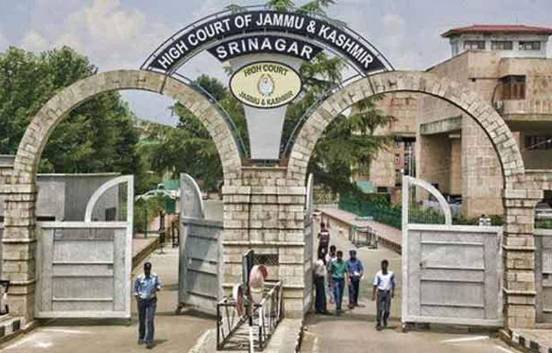Prerna Gala
Published on: September 5, 2022 at 21:32 IST
The Jammu and Kashmir and Ladakh High Court has ruled that a Muslim husband must not only demonstrate that the divorce was properly granted in line with Muslim law but also demonstrate that the wife was informed of the divorce in order to escape his obligation to support her.
During the hearing of a petition challenging an order made by the Chief Judicial Magistrate of Budgam under Section 488 of the J&K Civil Practice Code (in pari materia with Section 125 CrPC), the Magistrate awarded respondent No. 1 and respondent No. 2 monthly interim maintenance payments of Rs. 2000 and Rs. 1500, respectively.
The petitioner further challenged an order made by the Sessions Judge of Budgam, who supported the legality of the learned Magistrate’s contested order while dismissing a revision petition against it.
According to the provisions of Section 488 of the J&K C.r. P. C., a divorced Muslim wife is not entitled to maintenance; therefore, even interim maintenance cannot be granted in her favour, according to the petitioner’s main argument against the maintenance order.
The petitioner also informed the court that respondent No. 1 was not entitled to any support from the petitioner because the respondent had been divorced by the petitioner in accordance with communication dated 10.01.2019 issued by Anjuman Sharie Shian J&K.
The court had to decide whether the production of documents from Anjuman Sharie Shian, J&K, would prove conclusively and/or prima facie that respondent No. 1 had been divorced by the petitioner, which would have resolved the issue of whether respondent No. 1 was qualified to request maintenance from the petitioner.
The court noted that it is obvious that in order for a Muslim husband to escape his obligation to maintain his wife on the grounds that he has divorced her, he must not only demonstrate that the divorce was validly granted in accordance with Muslim law but also that the wife has been informed of the divorce.
The bench cited the Supreme Court’s observations in Shamim Ara vs. State of U.P. and Others, (2002), as it explained the aforementioned legal position.
“The respondent No.2 ought to have adduced evidence and proved the pronouncement of talaq on 11.7.1987 and if he failed in proving the plea raised in the written statement, the plea ought to have been treated as failed.”
“We do not agree with the view propounded in the decided cases referred to by Mulla and Dr. Tahir Mahmood in their respective commentaries, wherein a mere plea of previous talaq taken in the written statement, though unsubstantiated, has been accepted as proof of talaq bringing to an end the marital relationship with effect from the date of filing of the written statement.”
The bench also cited a judgement from the J&K High Court in Mohd. In the case of Naseem Bhat vs. Bilquees Akhter and Another, the court stated,
“The petitioner has come up with a plea that he has divorced respondent No.1 on 10.01.2019. The burden is upon the petitioner to show that his act of divorcing respondent No.1 was valid as per the Islamic law and that the divorce was communicated to respondent No.1. It is a settled principle of evidence that one who alleges a fact, the burden lies upon him prove the said fact.”
“Therefore, burden is upon him to establish the said fact and unless he discharges the said burden, it cannot be stated that the marriage between him and respondent No.1 stands dissolved”
In dismissing the petition, the bench said that it is obvious that the petitioner cannot escape his obligation to maintain respondent No. 1 until he meets his burden of proving that their relationship has ended.
The bench came to the conclusion that the petitioner must pay interim maintenance to the respondent until he can do so after going through the trial process in the case.

